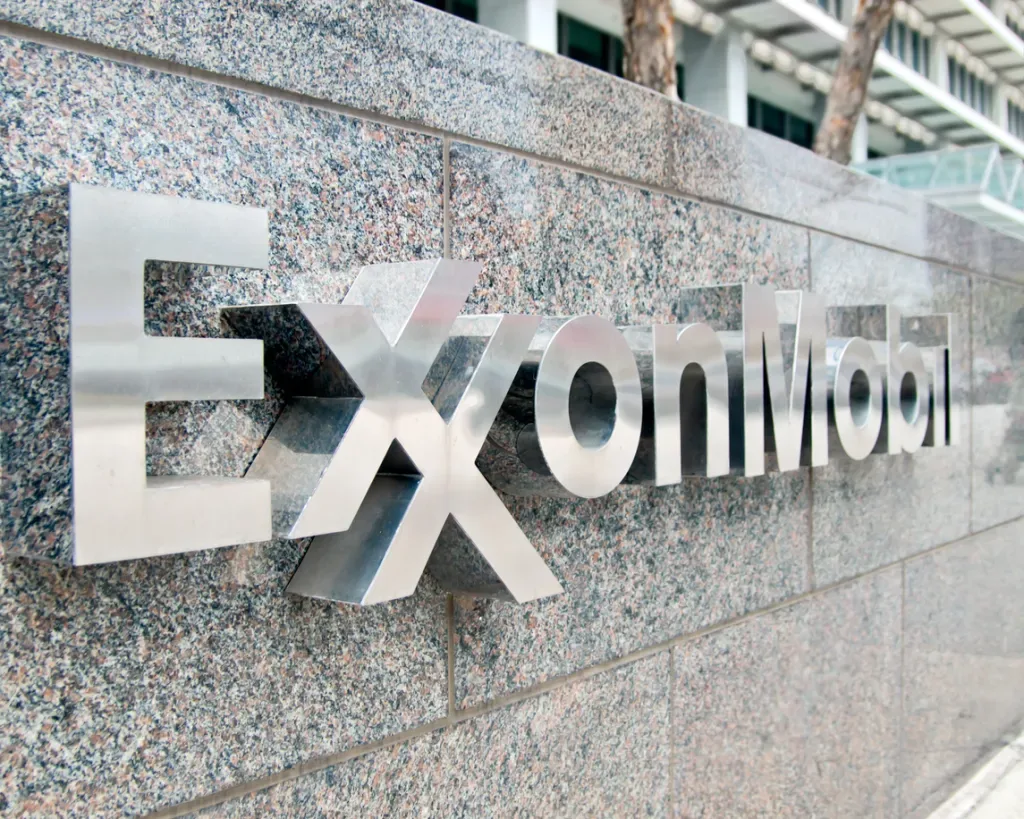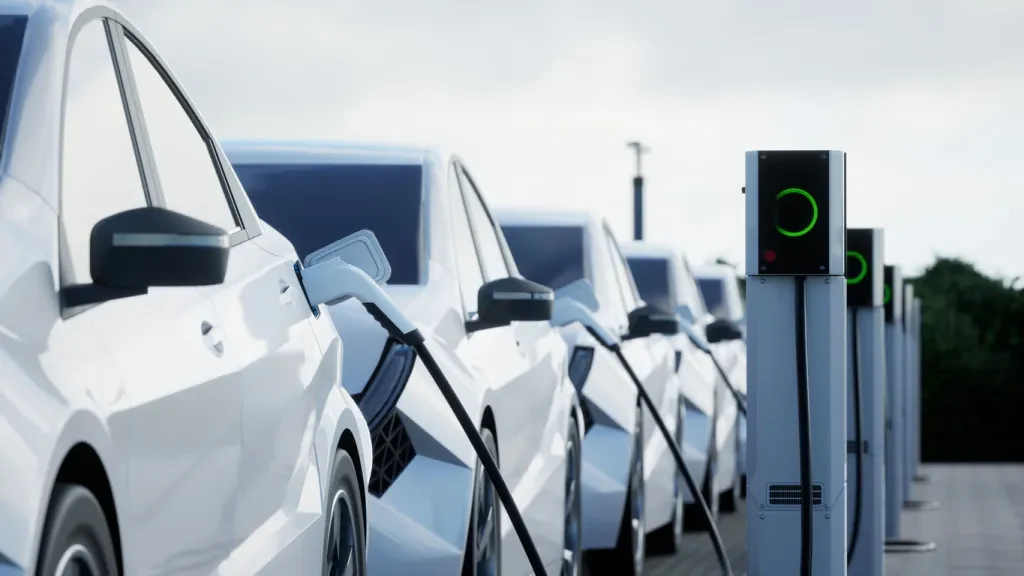Oil giant Exxon has just announced that they’ve struck lithium, or at least they intend to.
A significant land purchase in Arkansas signals their recognition that electric vehicles (EVs) are here to stay.
Today, we’re investigating how Exxon, a significant player in the energy industry, plans to impact lithium production in the US.
Let’s power up!

Exxon Announces Plans to Produce Lithium in the US
Exxon made waves when it released its plans to produce lithium in the US by 2027. The decision comes from an increased demand for electric vehicle batteries and reduced reliance on fossil fuels.
Underneath their new land in southwest Arkansas, this vital element waits. When mining starts, the company seeks to provide components for power banks for over a million EVs annually. However, they’re not stopping there. Their ultimate goal is to become one of the top global suppliers by 2030.
A collaboration with Tetra Technologies will allow them to have on-site battery production. The finished product will hit shelves under the brand Mobil Lithium.
Its biggest competitors, oil companies BP and Shell, are investing in EV charging stations worldwide. However, Exxon is taking a different path to serve the 99% of drivers yet to switch to EVs.
About Exxon Mobil
John D. Rockefeller started Standard Oil Company in 1870. Over the next 50 years, it became a dominant power in the American energy industry. Due to antitrust laws, the firm split into 34 separate entities. Standard Oil of New Jersey was one of these companies that would later become ExxonMobil.
Before November 30, 1999, they were two distinct brands. Their merger created the world’s largest publicly traded energy company.
Today, their headquarters is near Houston, Texas, but they’re in more than 200 countries and territories. They continue to innovate and work towards creating efficient and sustainable power production.
Exxon constantly pushes the envelope regarding innovation and emerging technologies in the sector. In 1947, they became the first successful off-shore commercial oil well. While they’ve faced criticism for their environmental history, they continue to press on.
Planning on going lithium? Lithium RV Battery: Your Easy Guide for DIY
How Does Exxon Plan to Produce Lithium?
In a recent acquisition, Exxon bought 120,000 acres of land in Arkansas’ Smackover Formation.
It’s been a reliable source of oil since the 1920s. Then, in 2022, officials found substantial reservoirs of lithium-rich saltwater underground. Estimates are that the company can extract enough material to produce batteries for 50 million electric vehicles.
Officials expect this will reduce carbon emissions created during the process by as much as 66%. They’ll pump the solution from 10,000 feet underground, extract the mineral, and return the remainder.
Another benefit is that they won’t have to ship it away for processing. The goal is to refine the product on location. They’ll be able to control almost the entire process efficiently and effectively.
On the other hand, industry experts aren’t as excited about the idea. Some suggest the operation will cost them nearly $2 billion. The problem is that it would likely only generate around $800 million in return.
While the demand will likely increase, will their bet pay off? We’ll have to wait and see.
Don’t believe everything you hear: The 5 Secret Lies of RV Lithium Batteries.
Who Invented the Lithium-Ion Battery?
Michael Stanley Whittingham, a researcher working for Exxon during the 1970s, demonstrated the initial capabilities of lithium. However, another scientist took things further to create a working product.
John B. Goodenough was born to American parents on July 25, 1922, in Jena, Germany. After serving as a meteorologist in World War II, he earned his master’s degree and Ph.D. in physics. He worked as a researcher at MIT for nearly a quarter century. From there, the professor taught at the University of Oxford’s Inorganic Chemistry Laboratory.
While at Oxford, he expanded on Whittingham’s research and discovered a way to double the capacity of lithium-ion batteries. Oxford rejected a request to patent the invention. As a result, he turned to the Atomic Energy Research Establishment (AERE), which quickly accepted his proposal.
Sadly, Goodenough got the short end of the stick with the deal. As a part of their agreement, he received no royalties. Estimates are that AERE made a nearly $12 million licensing deal with Sony Corporation in 1990.
In 2019, at 97 years old, Dr. Goodenough received a Nobel Prize in Chemistry. He was the oldest living Nobel Prize laureate until his death in August 2021.

How Are Lithium Batteries Used?
You can find lithium in many everyday portable electronics. They’re light and have a high energy density, which can endure more charge and discharge cycles. As a result, manufacturers often rely on them to power smartphones, laptops, and tablets.
Recently, we’ve seen a significant increase in how consumers use these batteries. For example, some use them to live off the grid or boondock. Because they charge much faster than other types, keeping them charged with solar panels is easier.
The main reason for Exxon’s involvement in Arkansas is the need for batteries for electric vehicles. Brands like Tesla, Rivian, and Lucid have forced practically every automaker to invest in EVs.
With a market for greener transportation, the future is bright for this technology.
Read more about Nikola Tesla and the Electrical Future.
Why Does It Matter?
Politicians and scientists have argued about the dangers of relying on fossil fuels. Exxon’s investment in lithium is a positive sign that changes are on the horizon.
In addition, this major project will positively affect the region. Arkansas Governor Sarah Huckabee Sanders expects it’ll bring many high-paying jobs. She hopes other manufacturers will consider moving nearby as infrastructure grows to cut costs.
Overall, having a successful American-based lithium extraction operation would significantly improve the supply chain. More secure and faster means to access necessary components appeal to many manufacturers. And, as the demand for EVs and other devices grows, they’ll be more capable of keeping up with demand.
ExxonMobil’s Investment Is In The Future of Energy
It’s great to see Exxon investing in lithium. While it’s not a perfect power source, the benefits outweigh any disadvantages. However, change takes time. While they’ll likely start building infrastructure soon, don’t expect them to be fully operational until 2030.
We can’t wait to see how they impact the industry.
Discover the Best Free Camping Across the USA
To be honest with you, we hate paying for camping. There are so many free campsites in America (with complete privacy).
You should give it a try!
As a matter of fact, these free campsites are yours. Every time you pay federal taxes, you’re contributing to these lands.
Become a FREE CAMPING INSIDER and join the 100,000 campers who love to score the best site!
We’ll send you the 50 Best Free Campsites in the USA (one per state). Access the list by submitting your email below: